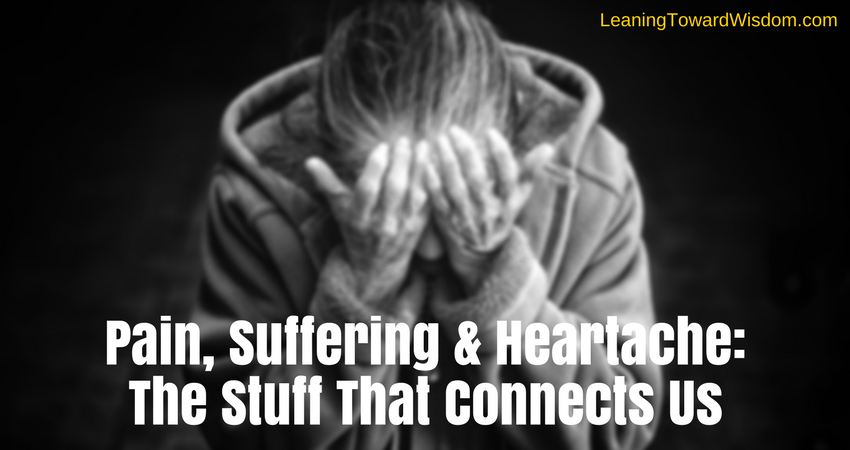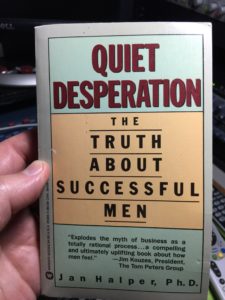Podcast: Play in new window | Download (Duration: 57:56 — 26.7MB)
Subscribe: Apple Podcasts | Spotify | iHeartRadio | Email | RSS | More

Music. Movies. Books.
Songs. Stories.
We love them. Enjoy them. Remember them.
I’m not a fan of the musical, but there are 2 that I love – and have owned on DVD for years. Paint Your Wagon with Clint Eastwood and Lee Marvin. A Funny Thing Happened On The Way To The Forum with Zero Mostel and Phil Silvers. Both are funny. Both make me smile. That makes them memorable for me.
Music is a much bigger player in my life. Lyrics and harmonies are the focal points for me. Songwriters have long exclaimed that most songs are about some sort of love. Often about lost love. Heartbreak and heartache. But these are audience consumables. We’re watching a movie. Listening to a song. Reading a book. Reaching a big audience doesn’t always rely on relatability, as evidenced by this past weekend with the release of the movie, Avengers: Infinity War. The film was produced for about $320 million and this past weekend – that’s right WEEKEND – it grossed over $640 million. I’ve not seen it, but I know it’s about superheroes. I don’t know any superheroes so I know it’s not relatable like that, but clearly millions of people love the fictional stories of superheroes.
We’re being entertained. And it’s fine. Better than fine really because I suppose it gives us the break from reality that helps us cope better with ours. All in moderation of course.
But then there are more personal stories shared by others that really impact us. Not like the temporary smiles provided by a movie like Support Your Local Gunfighter with James Garner (another favorite of mine). I even use it as my Twitter and Facebook header image because it makes me smile. I’m talking about something deeper. More impactful. Longer lasting. A real connection.
There’s a guy I follow named Bryan Elliott. He produces a web series, Behind The Brand. I don’t know Bryan personally, but I like him. He’s earned my attention. Back in February, he posted a little segment of a longer interview he did with Seth Godin. It’s about 9 minutes and it perfectly illustrates the title of today’s episode. You need to watch it.
Bryan tells Seth that during their first interview back in 2009 Seth gave him the best advice. Seth didn’t remember giving it to him, but it was pretty good stuff.
Bryan shared the story of his pain as an adopted boy. Grateful and thankful for the family who adopted him and loved him, Bryan grew up with the urge to find his real mother. He had questions and was desperate for answers. It’s a very touching story best heard directly from Bryan. So go watch the video of him telling it. I promise you’ll be moved. It just might make you a fan, even if you’ve never heard of him before.
Why?
Because you can’t hear him, or watch him and avoid thinking, “He’s real. I can relate.”
I’m not adopted. I know my parents. I knew my grandparents. But back in February when I first watched the interview Bryan did with Seth, I was moved by his story. Yes, I was already following him, but the connection grew deeper for me. Bryan showed me something I hadn’t seen before. He opened himself up and became vulnerable.
It’s all this hard stuff – our pain, our suffering, our heartache – that forges strong connections. I say hard stuff because it’s hard for people to share all that. We’re prone to hide. To make sure we look good. And sound good. Proving to the world, and fooling ourselves, that we’ve got it all together. But we don’t. Deep down we all know it, but there’s just enough doubt to make us think, “I’m such a failure. Look at them!”
What we care about. That’s the deal. Self-preservation. Putting on the front so others think well of us. It’s inside most of us. Society has conditioned us. We’ve spent years looking at people who seem better, smarter, better looking, more talented, more successful than we are. We have to do what we have to do to show we’re at least trying to keep up. That we belong
Question: To what are we trying to belong?
The fraternity of other frauds? A group of people who are behaving just like us, pretenders?
Question: Who are we trying to fool? And why?
Everybody. I get it. We want to fool everybody. Maybe most of all, we want to fool ourselves. And there’s the danger. Self-delusion.
The irony of it all is that the thing we most seek – connection with others – is foiled by our behavior. Hiding ruins it. Courage fosters it.
The paradox is that showing our underwear (my metaphor for letting others see our pain) promotes easy connection with others. And that takes courage because it feels like weakness. Fear takes over, forcing us to rationalize that if we let anybody see us sweat, then they’ll know we’re not as great as we want them to think we are. We’re afraid people will think less of us.
You know the truth? People aren’t thinking about us anyway. They’re busying thinking about their own lives. They’re wrapped up in their pain, suffering, and heartache. Sure, they’re also wrapped up in their success, accomplishment, and happiness (or their ongoing quest for it all). You don’t think so? Take a moment and think about yourself. In the last hour, have you thought about anybody more than you’ve thought about yourself – your own life? The stuff going on in your life?
Well, there you go!

We’ve conned ourselves into thinking that hiding is better. That it serves us well. But it never does. And it ruins our ability to connect because we’re just another lemming in the sea working hard to make sure the other lemmings see no difference. Meanwhile, we’re all living secret lives of desperation. Here’s my copy if a classic book I’ve had since 1988, “Quiet Desperation: The Truth About Successful Men” by Jan Halper, Ph.D. That quote on the cover is by leadership expert Jim Kouzes, who at the time was the President of The Tom Peters Group. Here’s what he wrote about this book, “Explodes the myth of business as a totally rational process…a compelling and ultimately uplifting book about how men feel.”
The title of the book is taken from a Thoreau quote,
The mass of men lead lives of quiet desperation.
The book began in the late 1970’s as a study to develop a management training program that could deliver a better leadership style. Over the course of conducting many conversations with successful men, the author discovered men talking about things they didn’t reveal to anybody else. They talked about their relationships, marriages, careers, fears, and dreams. They opened up, revealing themselves. Along the way, they shared why it was so hard to show up that way with their peers, spouses, and friends. They were reluctant to share, but each proved desperate to change but didn’t know how. They weren’t just executives. They were men. Humans. People dreaming, even desiring, to change. But stuck in their fear to operate any differently than they had in the past.
For the first time in my life, I feel like my professional life, my personal life and my spiritual life are falling into alignment better than they ever have before. I don’t mean to say that up to now my life has been all these multiple, incongruent buckets of activity and philosophy. But never before has all my energy, thought and actions been more perfectly aligned where it feels like one path is pretty parallel to the other lanes of my life. It’s a good feeling. To be living more open, authentic to who and what I really am – and more importantly, to be a better version of myself. The goal hasn’t changed…to become better every day.
When I first read the book, I had no idea that 30 years later I’d be embarking on a new professional journey to help business owners – not just men – overcome this very thing. That’s what The Peer Advantage by Bula Network is all about – a professional peer advisory group designed to serve small business owners operating businesses in the $10-50 million range. If you’re a small business owner or know somebody who is – and you care about your growth as a business leader and a person, then I’m going to invite you to check it out (and at least have a free conversation with me to see if it’s something suitable for us to work together).
It’s fascinating when the desperation that has been quiet for so long comes out. Like Bryan Elliott’s. For some reason, at that moment sitting with Seth Godin, he was compelled to open up about it. He decided to go with his heart instead of his head. To lean into his emotional space instead of his fears. My guess – and it’s strictly a guess based on how we all behave as humans – is that he just up and decided. If he’d thought too much about it, he probably would have talked himself out of it. Fear would have ruled the moment instead of brutal honesty.
Let’s clarify and differentiate complaining and whining from letting down our fear-based guard to share our pain. One is selfish. The other is genuine. They’re not kin to each other. Not even close. So don’t confuse yourself or try to confuse others, hoping they’ll accept your moaning for being authentically candid.
Too many people embrace being a victim. Because it feels good believing it’s not our fault. Short-term salve doesn’t heal though. It just makes us feel better in the moment. And actually furthers the damage.
People who enter a room with a moan often tickle me. They don’t mean to. They’re hoping I’ll feel bad for them. Instead, I feel bad for myself having to hear them sigh. “Oh, your poor, poor person!” That’s what they’re going for. And they get it. It doesn’t help them though.
Any attention will do. It’s a habit. A sick, bad, destructive habit.
I’m not talking about that.
I’m talking about reaching a spot where we allow our heart to let go of the pent-up pain. A place where we’re brave enough to embrace our humanity. Where we feel confident enough and brave enough to let others know about our struggles. Our pain. Our suffering.
At that moment – in that very instance – we’re connected to such people more than to that expert or guru who tells us how together they are. Those folks spewing all the advice, telling us what we should do, and what we shouldn’t do. Inadvertently (or maybe, advertently) robbing us of the experience to figure things out, own our own stuff and live our own lives without feeling like a victim.
But this isn’t about gurus. It’s about YOU. It’s about US. However ordinary or extraordinary we may be. It’s about all of us.
It’s about those of us who are financially wealthy and those of us who are financially strapped. It’s about those of us who are debt-free and those of us who are debt-laden. It’s about those of us who are single and those of us who are married. It’s about those of us who lack any color and those of who have color. Any color. It’s about those of us with lots of letters behind our name indicating high achievement in education and those of us with not so much as G.E.D. behind ours.
Humanity has this in common. Not just pain, suffering, and heartache, but the bigger burden of fear.
False Evidence Appearing Real
Boy, does it appear real? In an upcoming episode of LTW, I plan to share some more insights about how our beliefs drive our lives. I’ve told you I’m reading a book about our minds – the way we think – impacts our life. We’re likely much more capable of controlling our destiny than we realize. And there’s no doubt in my mind that we can accomplish much more if we can simply find a way to believe it. Simple. But not easy to do. Or more people would do it.
Personality traits aren’t lost on me. Some people are shy and bashful. Others are open and loud. Still others are a bit of both. What’s easy for some, is crazy hard for others. I’m empathetic. I’m also open and candid if the circumstances allow it. I tend to let the game come to me. I’m not prone to force the game. I don’t judge folks who roll differently. We’re still all humans. Each of us fully capable of hiding, putting on a mask, hoping and wanting others to think we’re better than we really are. Overcoming those fears is individual to us. But the fears are universal.
Does it motivate you to fully understand that what we endure – the bad stuff – drives us to deeper connections? Is that not a good enough reward to consider finding safe spaces and spots where you can do it? Or do it more?
There’s two parts to this. Well, maybe more than two. There’s US. There’s THEM. The other people to whom we feel a deep connection.
 Yesterday here in Dallas Jason Witten, the famed Dallas Cowboys’ tight end retired to join Monday Night Football. Fifteen years in the league, all of them as a Cowboy. Coach Bill Parcells drafted him in the 3rd round in 2003. By all accounts, he’s who we think he is. A genuinely good guy who mostly tries to do the right thing. Oh, and he’s a future Hall of Famer, too.
Yesterday here in Dallas Jason Witten, the famed Dallas Cowboys’ tight end retired to join Monday Night Football. Fifteen years in the league, all of them as a Cowboy. Coach Bill Parcells drafted him in the 3rd round in 2003. By all accounts, he’s who we think he is. A genuinely good guy who mostly tries to do the right thing. Oh, and he’s a future Hall of Famer, too.
Like all retiring professional athletes, Witten said he’d mostly remember the moments with teammates. And he’ll miss the locker room, that band-of-brothers feeling going through the same struggles and pain with teammates.
The accolades are great. The winning, too. But the grind is memorable when we share the experience with others. Jason Witten’s life as a Dallas Cowboy likely includes a larger circle than mine, or yours, but we can still relate to the pain. I’ve never experienced the pain, suffering or heartache of a professional athlete, but Witten’s realness was always enhanced because we got to see him as “a guy.” Whenever the team would lose – which happened quite a lot over the last 15 years – Witten would be the guy stepping up to field hard questions by the press. Others would hide. He never did.
Reliable. Dependable. Honest. Durable.
It’s what we aspire to be ourselves. And it demonstrates that it doesn’t matter if you’re a multi-million dollar a year pro athlete or just some working schlub…the deep connections are with family and friends with whom you can safely share your pain. And the THEM matters because the people willing to view you as a safe person with whom to share their pain…they’re the ones drawn more deeply to you.
Laughs are terrific. Smiles, too. Good times. We need them. They add zest to our lives. But the growth and connection mostly occur when we’re grinding our way through or past adversity. And when we encounter somebody brave to enough to step out. Somebody with the courage to not hide their pain, fears, and failures.
What does this mean for you? I don’t know. Do with it as you please.
Do you want to focus on not hiding as much? On being less hypocritical? On being more open and pulling off the mask?
Do you want to shell down the adversity, challenges, and opportunities with somebody?
I hope you find value in the truth of what connects us to help you move away from the fear that may be standing in your way of embracing the shared pain where we can benefit each other. And where we can not make it just about ourselves, but about helping each other knowing that we’re all hurting in some way. Cue the R.E.M. song, “Everybody Hurts.”
Be well. Grow great. Lean toward wisdom.


How Can You Help The Podcast?
- Subscribe at iTunes | Stitcher
- Leave us a review at iTunes
- Pick your favorite way to support us financially
- Join the conversation at our Facebook group
- Tell your friends. Promote the shows on social media.